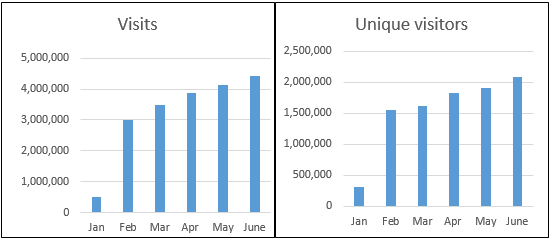34% of homeowners in the UK looking to move up the property ladder think that it is too difficult for them to move, according to new research by MoneySuperMarket.
On average, current mortgage holders say they need to save £10,549 before they can move. High house prices and the expense of moving are named as the two main reasons people have not yet moved house.
MoneySuperMarket found that 26% of respondents think it will be difficult to move up the ladder and a further 9% believe it is very difficult.
Among those aged between 35-54-years-old, this rises to 41% who would struggle to upscale and 28% of 18-34-year-olds would find it tough.

Third of Homeowners Can’t Move Up Property Ladder
Head of Banking at MoneySuperMarket, Kevin Mountford, says: “There was a time when those in the 35-54 age group would have been looking to downsize, but now this is the age group where people are starting a family in some cases or still housing grown up children who are struggling to find their own way.
“Although they might have the earning potential to make that next step, there is the constraint of mortgage terms that comes with their age. Lenders will tend to fix the term of repayments to retirement age, so for those movers aged over 34, the repayments on increased value mortgages will be much higher, as they’re paying it back over a shorter time.
“For example, a £250,000 mortgage on the leading two-year fixed at 1.05% could be taken out by a 30-year-old with a 30-year term and the monthly repayments would be £810. However, for someone aged 45, the same mortgage over a 20-year term would have monthly repayments of £1,155; that’s £345 extra to find each month to make that next move.”
Generally, money is the main reason property owners cannot move, with 47% saying that house prices restrict their movement up the ladder. 43% say they cannot afford the cost of moving.
Current homeowners believe they must save an average of £10,549 to move house, with Londoners expecting to need £12,946. In the North East, this drops to £6,772.
Mountford continues: “Getting a foot on the property ladder in the first place can be hard work, but for many homeowners, it’s just as difficult to take the next step. House prices have rocketed in recent years and tougher borrowing rules have made the search for a mortgage slightly harder.
“It is vital for a healthy housing market that people are able to move up the property ladder, otherwise the whole system can come to a grinding halt, leading to a shortage of property. As a result, second steppers can’t afford to be complacent when it comes to deciding whether to upsize their home. Planning a budget will be crucial, and really taking the time to sit down and work out exactly what costs will be involved is essential.”
Mountford adds: “The good news for those looking to move is that there’s a great deal of competition in the mortgage market at the moment. We’ve seen a huge drop in fixed mortgage rates over the past few years, some with manageable fees. Perks such as free legal costs and free valuations on properties are also offered by some lenders in order to get customers through their doors. As such, there really hasn’t been a better time to get a mortgage.”
Mountford explains that it is important to look at the bigger picture when looking for a new mortgage: “Don’t get lured in by a headline rate, and work out the total cost you have to repay over the term of the offer before agreeing to a deal.
“Also, think about whether you want a fixed or variable rate deal. If you opt for a variable rate mortgage, you need to ensure that you will be able to afford your monthly repayments if and when interest rates do rise, as they won’t stay at this level forever.”1
1 http://www.propertywire.com/news/europe/uk-home-movers-afford-2015063010687.html







